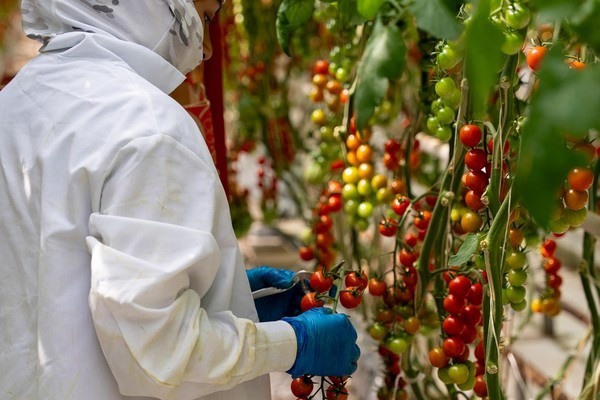While July 14th saw the decision come down that the U.S.-Mexico Tomato Suspension Agreement would be terminated, this week, Mexico introduced minimum export prices for fresh tomatoes. So what does this mean for those importing tomatoes into the U.S.?
"It's been a wild ride," says Skip Hulett, NatureSweet's chief legal officer. "My understanding is that the Mexican government aims to protect farmers from below-cost sales and stabilize incomes. They're trying to provide predictable returns for growers. They are also saying that prices will be reviewed annually."
Fair compensation for their work is a goal the company also shares and is something it has worked towards since its inception, as illustrated by the fact that it has certified its facilities in both the U.S. and Mexico as Fair Trade. "We will also continue to make sure that we deliver the highest-quality tomatoes at a fair price for U.S. consumers," says Hulett.
 © NatureSweet
© NatureSweet
Prices to climb
That said, with this minimum pricing combined with the now-imposed 17 percent tariff, there's no question that prices will have to increase on Mexican tomatoes, particularly during the winter season.
For now, the way forward is unclear. "Everybody is scrambling, and we don't know the long-term impact of this," says Hulett. "In the long term, our company is well situated in that we are largely vertically integrated and manage every step from greenhouse growing to delivery. It gives us better flexibility in our scale and control of supply. However, the produce industry runs on thin margins, and these cost increases are hard to absorb, and we're absorbing as much as we can. Now it's going to be even harder for the smaller, less integrated growers."
While this Tomato Suspension Agreement is long gone, Hulett does hope that there could be another agreement down the road. "We encourage our governments to continue talking and reach an agreement," says Hulett. "There is a deal that would protect Florida growers while also protecting greenhouse-grown tomatoes, which is just not something Florida growers do. I'm hopeful a new agreement can be reached. Right now, though, the industry is managing this the best it can. However, there are many challenges ahead for all of us."
 For more information:
For more information:
Jennifer Halpin
NatureSweet
[email protected]
https://naturesweet.com/
